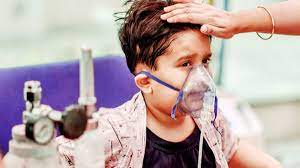Covid episode and children.
Youngsters’ lives have been flipped around by this covid symptoms in kids. Between remote tutoring and playdates being dropped, youngsters’ schedules are everything except schedule. Kids additionally have inquiries concerning Covid, and advantage from age-suitable answers that don’t fuel the fire of nervousness. It additionally assists with talking about — and good example — things they can handle, similar to hand washing, physical separating, and other wellbeing advancing practices.
Which COVID-19 antibodies has the FDA approved for youngsters?
In May 2021, the FDA extended its crisis use approval (EUA) for the Pfizer/BioNTech COVID-19 antibody to incorporate youths 12 to 15 years of age. Beforehand, the Pfizer immunization was approved for use in kids 16 years and more established. For the present, this is the main antibody approved in the U.S. for anybody under age 18.
The EUA’s extended approval depended on outcomes from a Phase 3 preliminary of kids ages 12 to 15. The preliminary enlisted 2,260 teenagers; half got the Pfizer mRNA antibody, the other got a saltwater fake treatment.
The safe reaction in the inoculated juvenile gathering was significantly more grounded than that in immunized 16-to 25-year-olds took on a previous review. Moreover, a sum of 16 suggestive instances of coronavirus were accounted for during the preliminary, all in the fake treatment bunch, which implied that the immunization had been 100% powerful in forestalling COVID-19.
Immunization related incidental effects were gentle and included agony at the infusion site, sleepiness, migraine, chills, muscle torment, fever, and joint torment. Pfizer has likewise begun testing the antibody in kids more youthful than 12 years.
A CDC report distributed in MMWR in October 2021 showed that 12-to 18-year-olds who’d gotten two portions of the Pfizer immunization were 93% more outlandish than the individuals who were unvaccinated to be hospitalized for Covid Symptoms In Kids. The examiners checked out hospitalizations of teenagers across the US from June through September, when the Delta variation was transcendent. Covid Symptoms In Kids related hospitalizations in kids and youths are still moderately uncommon; most of members in this review had somewhere around one fundamental ailment that put them at expanded danger for extreme ailment.
I have been catching wind of heart issues in children and youthful grown-ups following the COVID antibody. Would it be a good idea for me to in any case get my kid inoculated?
There has a been a higher-than-anticipated number of heart aggravation cases after immunization with the mRNA COVID-19 antibodies, especially among young men and youngsters. Nonetheless, the CDC still unequivocally suggests that all youngsters 12 years and more seasoned be immunized.
As of July 12, 2021, 1,047 reports of myocarditis (irritation of the heart muscle) and pericarditis (aggravation of the external coating of the heart) had been accounted for in individuals under age 30, especially in male youngsters and youthful grown-ups, after inoculation with the Pfizer/BioNTech or Moderna mRNA antibodies The CDC’s Advisory Committee on Immunization Practices (ACIP) has said accessible information “recommend likely relationship of myocarditis with mRNA inoculation in teenagers and youthful grown-ups.” Even with the expanded danger, heart irritation is an uncommon event.
Myocarditis and pericarditis after immunization was generally normal in guys ages 16 to 24. Cases would in general happen inside a few days after the second mRNA immunization portion. A great many people who created myocarditis or pericarditis had gentle cases and recuperated totally after treatment.
In the event that your youngster fosters any of the accompanying side effects inside seven days of immunization, look for clinical consideration:
chest torment
windedness
feeling like your heart is thumping quick, vacillating, or beating.
This or some other expected critical result of an antibody is consistently of uncommon worry in youngsters. While the danger of COVID causing extreme disease and hospitalization is a lot of lower contrasted with grown-ups, recollect that somewhere around 491 kids ages 0 to 17 years have passed on from COVID. What’s more, long haul unfavorable wellbeing impacts even after gentle disease in kids are presently being perceived.
It’s reasonable that many guardians will be awkward with one or the other decision, immunize now or pause. Yet, the ascent of the more infectious and conceivably more hazardous Delta variation, joined with the insurance presented by group resistance, upholds the CDC proposal that all youngsters ages long term and more seasoned get immunized.
How does COVID-19 influence kids?
Kids, including extremely small kids, can foster COVID-19. A large number of them have no side effects. Those that do become ill will more often than not experience milder manifestations like poor quality fever, exhaustion, and hack. A few kids have had serious complexities, yet this has been more uncommon. Youngsters with basic ailments might be at expanded danger for serious disease.
A conceivably serious and risky inconvenience can happen in youngsters. Called multisystem incendiary disorder in kids (MIS-C), it can prompt hazardous issues with the heart and different organs in the body. In this condition, distinctive body parts, like the heart, lungs, kidneys, cerebrum, skin, eyes, or gastrointestinal organs, can become aggravated.
Side effects of MIS-C can incorporate:
- fever enduring in excess of a few days
rash
“red eyes”(redness of the white piece of the eye)
stomachache
regurgitating and additionally the runs
a huge, enlarged lymph hub in the neck
neck torment
red, broken lips
a tongue that is redder than expected and resembles a strawberry
enlarged hands or potentially feet
peevishness or potentially surprising drowsiness or shortcoming.
When can kids get the COVID-19 immunization?
In November 2021, the CDC prescribed that youngsters 5 to 11 years of age be inoculated with the Pfizer/BioNTech pediatric COVID-19 immunization. The proposal followed the FDA’s approval of the antibody for youngsters in this age bunch.
Similarly as with more seasoned youngsters and grown-ups, 5-to-11-year-olds will require two dosages of the Pfizer/BioNTech immunization, separated three weeks separated. Yet, they will get a lower portion (10 micrograms) contrasted with 30 micrograms for individuals long term and more seasoned.
In concentrate on information put together by Pfizer to the FDA, 2,268 youngsters, ages 5 to 11, gotten two 10-microgram portions of the Covid Symptoms In Kids antibody, separated three weeks separated, while a more modest gathering of kids got a fake treatment. Counter acting agent reactions and secondary effects in the 5-to-11-year-olds were similar to those of 16-to 25-year-old members from a past report.
What requirements to occur for schools to open securely?
School terminations have affected kids on many fronts, from scholastics and social communication to value, food security, and psychological well-being. Securely returning youngsters to in-person guidance in fall 2021 is a need for the CDC.
In July 2021, the CDC suggested that all instructors, staff, understudies, and guests to schools wear veils while inside, whether or not or not they are immunized. They additionally suggest that each and every individual who is qualified for immunization get the antibody.
There are a few other anticipation systems that, when layered together, ought to limit the spread of Covid Symptoms In Kids in schools. These incorporate physical separating; screening, testing, and contact following; remaining at home when debilitated; and incessant handwashing. Schools ought to likewise give a valiant effort to further develop ventilation, by opening windows and entryways, for instance. Choices about a portion of these anticipation systems might rely upon levels of local area transmission.
Are kids any pretty much logical than grown-ups to spread Covid?
Most kids who become tainted with the COVID-19 infection have no indications, or they have milder manifestations like poor quality fever, exhaustion, and hack. Early investigations proposed that youngsters don’t contribute a lot to the spread of Covid. Yet, later examinations demonstrate that kids are fit for spreading the disease.
However the examinations changed in their strategies, their discoveries were comparable: tainted youngsters had so a lot, or more, Covid in their upper respiratory plots as contaminated grown-ups. What’s more a November 2021 review directed by Harvard analysts again affirmed that kids convey live infection fit for contaminating others.
The measure of infection found in youngsters — their viral burden — was not connected with the seriousness of their side effects. As such, a kid with gentle or no manifestations might have similarly as numerous viral particles in their nose and mouth as a youngster that has more serious indications. Thus, the presence of a high popular burden in tainted kids improves the probability that kids, even those without side effects, could promptly spread the disease to other people.
When do you have to carry your kid to the specialist during this pandemic?
In the event that you have any worries about your kid, call your PCP’s office for guidance. Many practices are offering telephone or telemedicine visits, and it’s striking the number of things can be tended to that way.
A few things, however, may require an in-person arrangement, including:
Ailment or injury that could be significant, like a kid with inconvenience breathing, critical torment, strange lethargy, a high fever that won’t descend, or a cut that might require join or a bone that might be broken. Call your PCP for direction with respect to whether you ought to carry your youngster to the workplace or a nearby trauma center.
Youngsters who are getting progressing therapies for a genuine ailment like malignant growth, kidney infection, or a rheumatologic illness. These might incorporate chemotherapy, mixtures of different drugs, dialysis, or bondings. Your PCP will exhort you about any progressions in medicines or how they are to be given during the pandemic. Try not to avoid any arrangements except if your primary care physician advises you to do as such.
Exams for exceptionally small kids who need immunizations and to have their development checked. Check with your primary care physician in regards to their present strategies and practices.
Tests and visits for youngsters with specific medical issue. This may incorporate youngsters with relaxing

